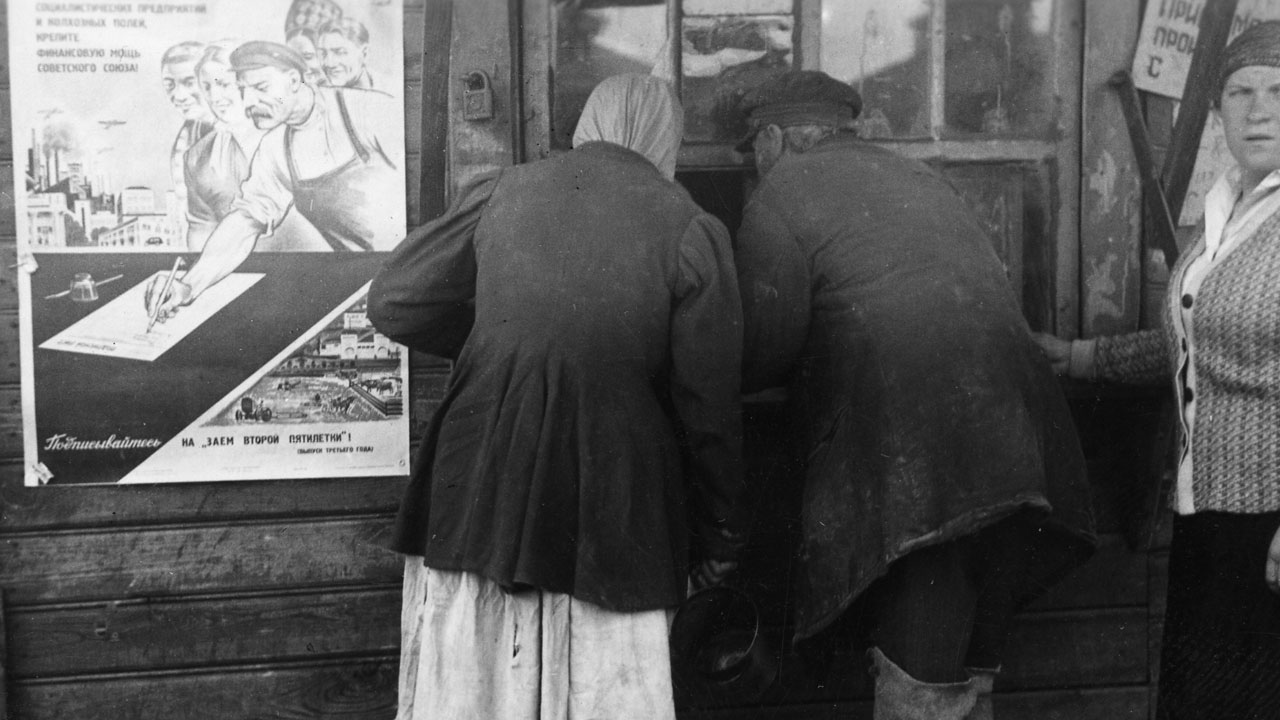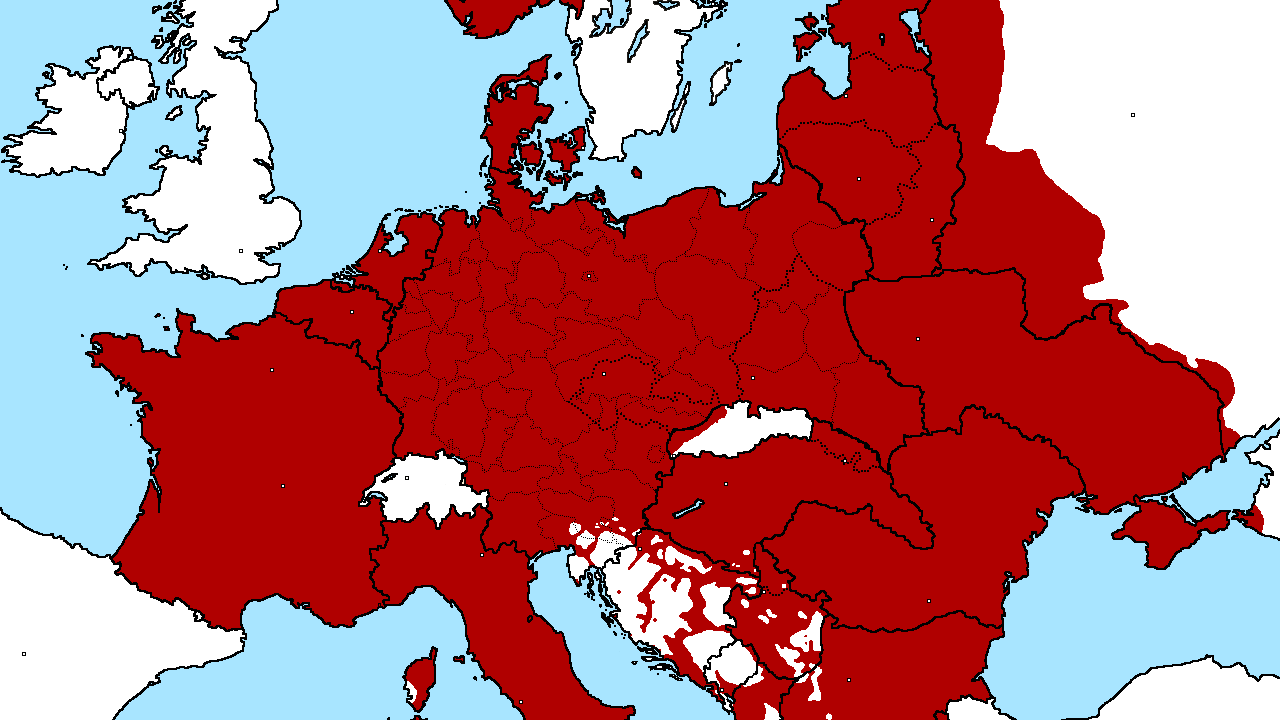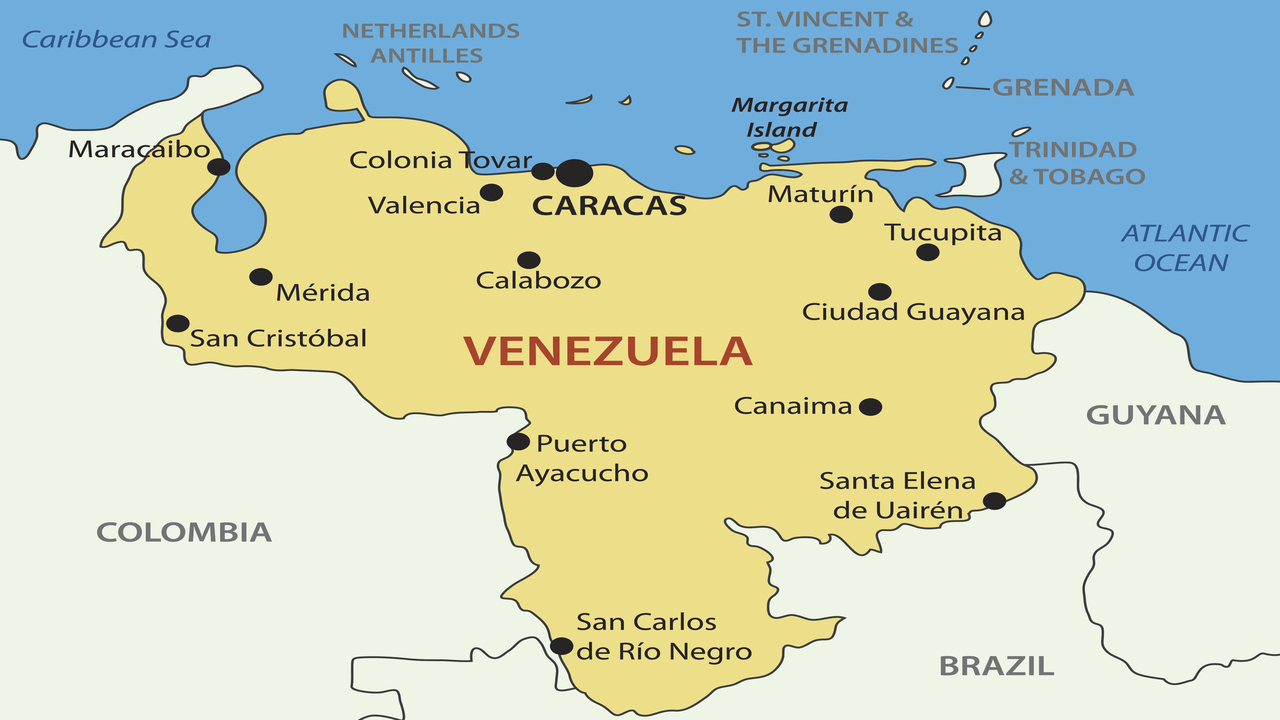Editor’s Note: This article is part of a series covering the moral case against socialism. To read the articles in order and to learn more about the case against socialism, go here: https://stoppingsocialism.com/the-moral-case-against-socialism/
In my article titled “What Is Socialism?” I explained what socialism entails—both the communist version advanced by Karl Marx and the modern European-style socialism of Sweden and other Western European countries. In this article, I’ll examine whether Marx’s popular view of socialism is practical—or even possible.
Before doing so, it’s important to note that Marxist socialists are often the first to point out Marx’s vision for a classless society has never been fully implemented anywhere in the world. In fact, it’s common for modern socialists to allege that the very same examples of failed socialism so often presented by those of us who support individual liberty are really nothing more than bastardized forms of capitalism. Cambodia, China, the Soviet Union, Venezuela—these are, at least in the minds of some modern socialists—absolutely not examples of Marxist socialism.
You might be surprised to hear that on this point, I agree with proponents of socialism; any “socialist” society in which there are distinct classes, oppressive regimes, and state-sponsored violence cannot be examples of what Marx dreamed of achieving, although I do believe it’s fair to say that these outcomes are inevitable when Marxists attempt to fundamentally transform nations.
With that said, I disagree completely with the belief that Marxism is possible to fully implement—not only today, but at any point in the future, too. Why? Because key aspects of Marx’s socialism are totally incompatible with essential features of human nature. It is my view that there has never been a truly socialist state for the same reason there has never been a flying pig or a four-sided triangle: It’s completely impossible.
Socialism’s Fatal Flaw
Marxist socialists have built their entire system on several deeply flawed assumptions, but perhaps the most critical is in Marx’s socialism it is assumed that it is possible to convince virtually everyone to abandon their natural tendency to embrace competition and ambition. Socialists frame competition as the fruit of greedy ruling-class leaders’ schemes, not as the result of human nature. According to socialists, we compete because we believe we must, and the reason we believe we must compete is because those who control the means of production have fooled all the peoples of the world into thinking competition is normal.
This view is proven false by virtually every aspect of the human experience. From the time children first begin to interact with one another to the moment we die, all humans experience and embrace some form of competition, even when they don’t need to. Young children race each other in school yards. Siblings compete with one another for attention from parents. Children play cards and board games. High schoolers compete with one another in various clubs, classrooms, and for admission to colleges. Hundreds of millions of people, young and old, watch competitive sporting events every year. It is only natural then that humans extend that competitive spirit to the marketplace as well.
Some socialists say humans only compete with one another because they have been indoctrinated to do so. They claim what seems “natural” and “normal” only appears to be so because we’re all the victims of immense propaganda campaigns and institutional coercion. But socialists ignore competition is evident throughout the natural world. All animals compete for food, resources, territory, and/or mates, as any biologist will tell you. A competitive spirit isn’t instilled into humans because of the ruling class’ trickery, it’s an inherent part of life for all creatures on Earth.
Some socialists might accept that humans are by nature competitive, but they would reject that this competitive spirit must enter the workplace. They insist instead that all economies can properly function without any competition. How, in practice, would this work itself out?
The Lazy Factory Worker
Imagine a fictional nation in which the entire economy is socialized in line with Marx’s ideology. Now, imagine Don and Lazy Bill work at an automotive plant, where they each have identical jobs on the plant’s assembly line.
Don is an exceptional worker. He works faster and harder than everyone else on the line, including Lazy Bill, who is the plant’s least-productive worker. Not only is Don an outstanding employee, he’s a pleasure to be around and has exceptional leadership qualities, regularly going above and beyond his position’s requirements.
Lazy Bill is not only the plant’s worst employee, he’s also a poor communicator and unwilling to fulfill his duties in a timely manner. Lazy Bill isn’t bad at his job because he’s intellectually or physically incapable of doing it, he just doesn’t enjoy working as much as Don does.
In Marx’s socialist scheme, Don and Lazy Bill would each receive exactly the same amount of wealth to satisfy their “needs”—food, clothing, housing, etc. Even though Don’s work is unquestionably more important to the factory, he wouldn’t receive any additional benefits.
Some workers—perhaps even our fictional worker Don—might continue to work at a productive pace despite Lazy Bill’s performance and the apparent unfairness of a system that provides all workers, regardless of talent or work ethic, the same amount of wealth. Don might enjoy his job so much that he doesn’t need any additional incentives to work more efficiently. But what about the rest of the workers in the factory, those who aren’t as unproductive as Lazy Bill but also don’t enjoy working as much as Don?
In socialism, for a nation’s productivity to remain the same, all workers must continue to produce at the same rate without financial incentives as they do with financial incentives, or else the entire economy’s productivity inevitably will decline. So, the workers watching Lazy Bill benefit from the same amount of wealth every week as they do would need to continue working at a high rate out of some altruistic desire for the community, nation, or world, not because it’s in their own best interests to do so.
Wherever such a model has been imposed on a large scale, productivity has nearly always fallen absent some other motivation (fear of war, for instance, or violence). The reason is obvious: When the lowest-performing, laziest workers receive the same wealth as the highest-performing, hardest-working individuals, there’s little, if any, motivation for most people to work as hard or harder than the most productive employee. Instead, the entire factory workforce only needs to work as hard as the least-productive person. Put simply, the entire socialist economy is a race to the bottom.
This is a significant reason why so many so-called “socialist” and “communist” regimes throughout the world end up resorting to violence, because without violence, threats to remove liberty, etc., there’s simply no reason for people to freely choose to work at an efficient rate. Everyone works as little as possible, dragging the entire country down. With this in mind, it’s fair to reason that without an oppressive, tyrannical centralized power, it’s impossible to have an equal distribution of wealth. Of course, the existence of a powerful state capable of forcing others to work makes it impossible to have a classless society—an essential component of Marxism. This is an extremely important reason why there has never been a truly Marxist society in the world.
The Happiest Sewage Treatment Plant on Earth
Many modern socialists argue that in their model, workers have the power to choose the jobs they are most passionate about, so, they reason, productivity concerns aren’t an issue. In other words, the only people who will work in factories are those who truly desire to. In socialism, everyone gets to do what they love.
If this all sounds too good to be true, it’s because this view is totally devoid of economic realities. For any modern society to function properly, there must be, at the very least, essential services—many of which involve jobs virtually no one would take in a world in which all people receive the same wealth for their work.
For instance, in a socialist utopian America, thousands of people would voluntarily work at the nation’s sewage treatment plants, where some would be required to spend their days wading through thousands of tons of human excrement in return for the same wealth as the person powdering donuts at Disney World.
Similarly, who’s going to work the cleanup crews in slaughterhouses or spend their days clearing trash from America’s streets for the same wealth as those who spend five hours per day playing with puppies?
These might, at first, sound like silly examples, but literally thousands, perhaps millions, of similar comparisons could be made, touching almost every aspect of the economy.
Another similar problem would arise because there aren’t enough desirable jobs in the world to satisfy the hopes and dreams of every worker. For example, there are probably far more people in the world who want to be doctors than there are positions available. Similarly, not everyone who wants to be a doctor has the intelligence or fortitude to do so. What do those people who genuinely want to be physicians but can’t do for a living? And who decides which lucky few get selected for society’s most desirable jobs? It’s easy to see how these problems would lead to corruption, the centralization of power, black markets, and other issues that have plagued collectivist governments for hundreds of years.
What About Those Who Won’t Work?
The most problematic group in a socialist society isn’t the nation’s unproductive workers; it’s those who choose not to work at all. When asked what would happen with these individuals, socialists have provided a wide range of responses. However, historically, the most common reaction by those attempting to build a socialist society has been to use force—prison, violence, threats—to compel people to work or to work more productively.
However, as I previously noted, in a truly socialist society, there are zero class differences. There are no ruling government officials or oppressive regimes. In such a scheme, how are those treated who don’t want to work in factories or sewage treatment plants, as garbage collectors, or in any other position?
Interestingly, many modern socialists argue these folks need not work at all. According to this theory, there is plenty of wealth to go around without needing all able-bodied people to work, so all those who don’t want to work could pursue their own personal interests instead.
Parts of this argument are admittedly difficult to disprove using data. There is no historical precedence for an economic system in which only those who enjoy working are asked to work while everyone else takes a lifelong paid vacation. (There are currently many nations with large welfare programs, but workers in those societies almost always have the opportunity to earn more than those who do not work. In a Marxist model, however, everyone would receive the same wealth.) And it’s effectively impossible to calculate how many people in society would choose not to work if given the option. Basic logic suggests, however, that if no one must work, most people won’t.
What about the argument claiming there’s so much global wealth that many people wouldn’t need to work if all the available wealth were to be redistributed equally? According to a 2017 report by Credit Suisse, there is about $280 trillion of wealth in the world today. That sounds quite impressive, but when you divide that immense amount of wealth out equally among the world’s 7.6 billion people, each individual would only receive less than $37,000, or about $57,000 per adult—and that includes the value of land.[1],[2]
As numerous others have noted, including Don Watkins and Yaron Brook in their book Equal Is Unfair: America’s Misguided Fight Against Income Inequality, the only way to have true equality today would be for all people to live in miserable poverty. And that problem would be made much worse in a world in which no one is required, either through market forces or by some other means, to work.
The Impossible Dream
If you were to boil down all of Marxist thinking into one idea, it would be that Marx wanted to end classes—which simply means he did not want there to be varying degrees of wealth. According to Marx, everyone should get what they need—not necessarily what they want—and no one should have noticeably more wealth than anyone else. In Marx’s perfect world, society would likely be classless and, in many respects, without any markets (as we understand them today).
Even if we could have a nation or world in which all people voluntarily shared all wealth equally, there are several severe problems that undercut much of Marx’s thinking. For instance, in a world without classes, how would finite resources like land be distributed?
Malibu or Topeka?
There’s nothing wrong with Topeka, Kansas, but given the choice (assuming there is no such thing as wealth disparity or money), it’s safe to say far more people would choose to live in Malibu, California than in Topeka. But in a socialist model, where there are no classes, how could the tens of millions of people in America who want to live in Malibu have the ability to do so? It’s certainly possible thousands of people could move to the Malibu region if all the land in the area were to be confiscated, but there simply isn’t enough space for everyone to live in Malibu who wants to.
This might sound like a ridiculous problem, but it illustrates the foolishness of the socialist model. Even if all people were to have the same house, yard, etc., not everyone would get to live in Malibu, which means, in effect, you would have “classes” of people—those who get to live in Malibu and those who want to but can’t.
There are significant economic considerations to keep in mind as well. Even if you could find enough gorgeous lands throughout the United States to satisfy everyone today, what happens in 500 years, when there are hundreds of millions of additional Americans? How can everyone live in the places they want to in an increasingly populated world?
Even more importantly, not everyone can live in their ideal locations, because if they did, there likely wouldn’t be enough people to work America’s massive farmlands, cut down trees, drill for oil and natural gas, etc. Not everyone can live in paradise, because paradise is often not located where important natural resources and industries are situated.
To these objections, socialists insist enough people would choose voluntarily to live and work throughout the country, including in those regions where most of America’s food is grown and energy is gathered and distributed. But that assessment is based on absolutely no evidence. What is clear, though, is that a group of people working on a farm in northern Minnesota would have a very different life than those who don’t work at all and have homes located on Malibu’s beaches—and “different,” at least to some people, would surely feel a lot like the presence of classes.
Another concern related to land is the role property rights play in ensuring lands are taken care of. In many socialist models, property would be redistributed when a person occupying that land dies. This is, in my opinion, an essential feature of Marxist property ownership, because if land can continually be passed down, more-desirable lands would never be given away by families, effectively creating a hereditary class. But if land ownership is always temporary, then what incentive is there to improve upon it, protect it, or use it efficiently? None! In fact, any efforts made for these purposes would be extremely inefficient, because individuals and their families would be able to gain nothing from them in a cashless, marketless society that doesn’t permit families to pass down property.
Ask any parent of teenagers whether these principles are universally true, and they’ll answer with a resounding “yes.” When children live at home, do they treat their parents’ house, car, etc. with the same degree of care or respect as the property they bought and paid for themselves? In many cases, they don’t, and the reason is simple: It’s human nature for people to assign greater value to the possessions they worked hard to gain. Socialism turns that basic principle on its head, and when multiplied across an entire country or world, the results would be disastrous.
A Delusional Utopia
There’s much more that could be said about why Marx’s socialism appears to be nothing more than a wild fiction, but there are many more important moral concerns that now need to be considered, which I’ll do in my next article, titled “Why Socialism Is Evil.”
What I hope has been clear by this point, however, is that the common thread that runs through all of Marx’s thinking, as well as the thinking of many modern socialists, is that property ownership and management should be collective and that modern democratic socialists believe their system will work because people will choose to behave in ways that seem contradictory to all of human history and nature.
In Marxism, future humans will not be nearly as concerned about competition or their own personal welfare as they are today. They will voluntarily choose to work the jobs no one wants, and they will do so in exchange for the exact same wealth everyone else receives. Future laborers will also agree to work even while knowing they receive no additional wealth or benefits as a result of that labor and while knowing that if they were to choose to stop working, they could pursue their own hobbies and personal interests whenever they want. Additionally, these people would voluntarily elect to manage their property efficiently and effectively even while knowing they and their family will never benefit from that extra work.
These ideas aren’t only radical, they are delusional. But it’s important to remember there’s nothing inherently immoral about advocating for a system that very likely won’t work. To prove the primary claim advanced throughout this website—that socialism is dangerously immoral—several important ideas must be discussed at length, which I’ll do in my next article, “Why Socialism Is Evil.”
PHOTO: Photo believed to have been taken in Moscow, Russia in the 1930s. Photo by Eirik Sundvor and provided by The Municipal Archives of Trondheim in Norway. Attribution 2.0 Generic (CC BY 2.0) https://www.flickr.com/photos/trondheim_byarkiv/10421770075/in/album-72157636833018904/
[1] Robert Frank, “Richest 1% now owns half the world’s wealth,” CNBC.com, November 14, 2017, https://www.cnbc.com/2017/11/14/richest-1-percent-now-own-half-the-worlds-wealth.html.
[2] Global Wealth Report 2017, Credit Suisse Research, 2017, http://publications.credit-suisse.com/tasks/render/file/index.cfm?fileid=12DFFD63-07D1-EC63-A3D5F67356880EF3.
Justin Haskins is editor-in-chief of StoppingSocialism.com, a New York Times bestselling author, and the director of the Socialism Research Center at The Heartland Institute. Follow him on social media @JustinTHaskins.





